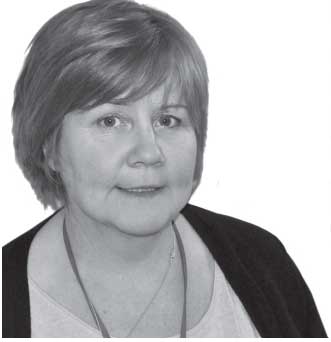Working in wheelchair services might not sound glamorous but it is a rewarding and vital speciality, says Claire Offord.

I am the only physio at the moment. For what might be historical reasons, the wheelchair service mainly attracts occupational therapists. I would love to see more physios enter this field which is so interesting, complex, innovative and challenging. I also believe that with their biomechanical knowledge and instincts, physios have natural handling, observational and analytical skills when doing detailed physical assessments.
I certainly did not appreciate the complexity of the job before I became a wheelchair therapist. Having been in paediatrics for 25 years I thought I knew my way around wheelchairs, but it was a long and steep learning curve. To offer comfortable functional seating to each individual is an enormous challenge.
My impetus to write this article was being invited to represent the CSP at a wheelchair summit day in London last year. The wheelchair service offers an essential service which can have a dramatic effect on the way a person can live. It was great to hear this recognised and to learn that both NHS England and NHS improving Quality are trying to improve this service throughout the country.
This improvement drive is titled Right chair, right time, right now. Having read articles in Frontline highlighting how some physiotherapists struggle to get appropriate chairs for their patients in a timely fashion I am sure that there will be quite a few therapists cheering this aim.
NHS England and NHS Improving Quality are aware they face a mountainous task. There’s no national data. They need to build a national database and develop resources to support commissioners of wheelchair services so they understand the needs of users and the consequences of poor provision.
An earlier wheelchair summit set up six dedicated workstreams led by a cross section of key stakeholders.
Their task is to:
- improve assessment
- empower service users and carers
- improve commissioning and procurement
- improve integration of health and social care
- improve training for staff
- improve use of innovation
With these key stakeholders working alongside NHS England and NHS Improving Quality, we should see the removal of significant variation in what currently exists. Those who have chosen this wheelchair service career pathway are genuinely excited that service users across the country will benefit from this large-scale, committed project.
More talented, enthusiastic skilled therapists are needed to help sustain this project. My commitment at the summit was to write this article. Working in the wheelchair service has been the most interesting and challenging job I have ever had – and the most rewarding. When you get it right, you change a person’s life.
Claire Offord is a physio in wheelchair services team, Queen Mary’s Hospital, Roehampton, London.
Further reading
Author
Claire OffordNumber of subscribers: 0
